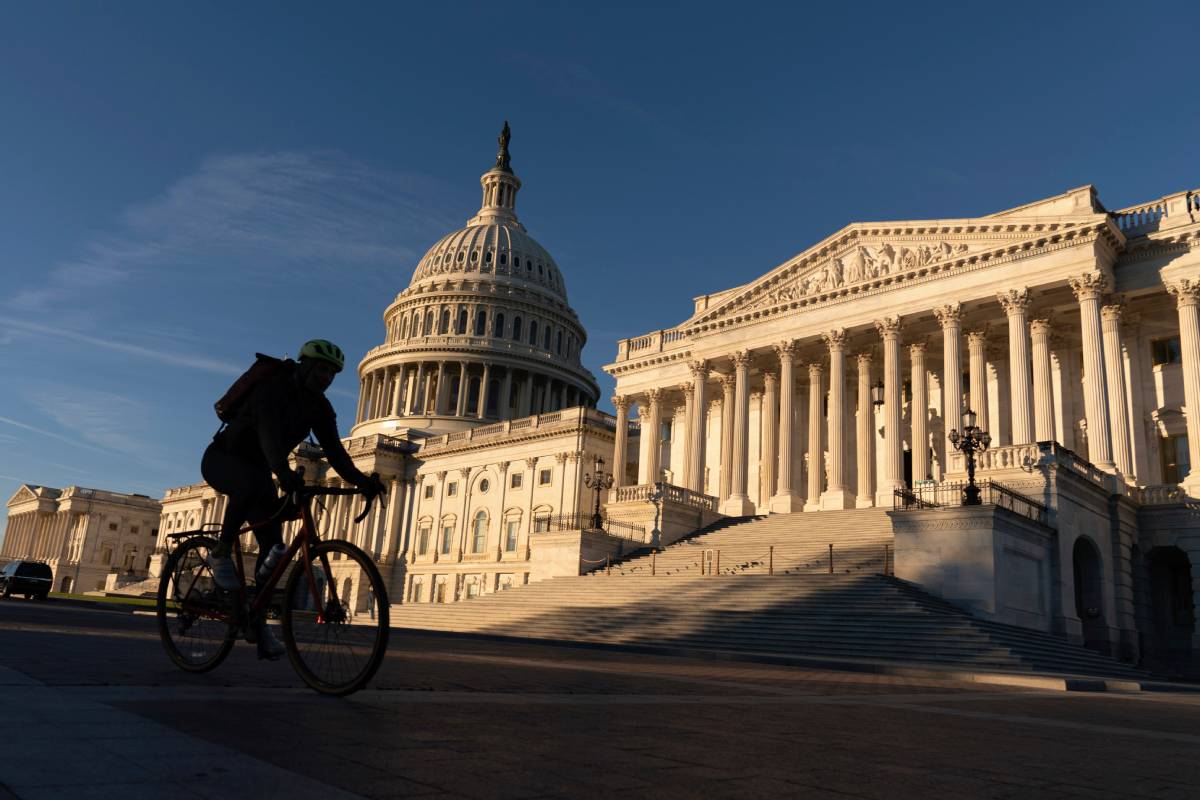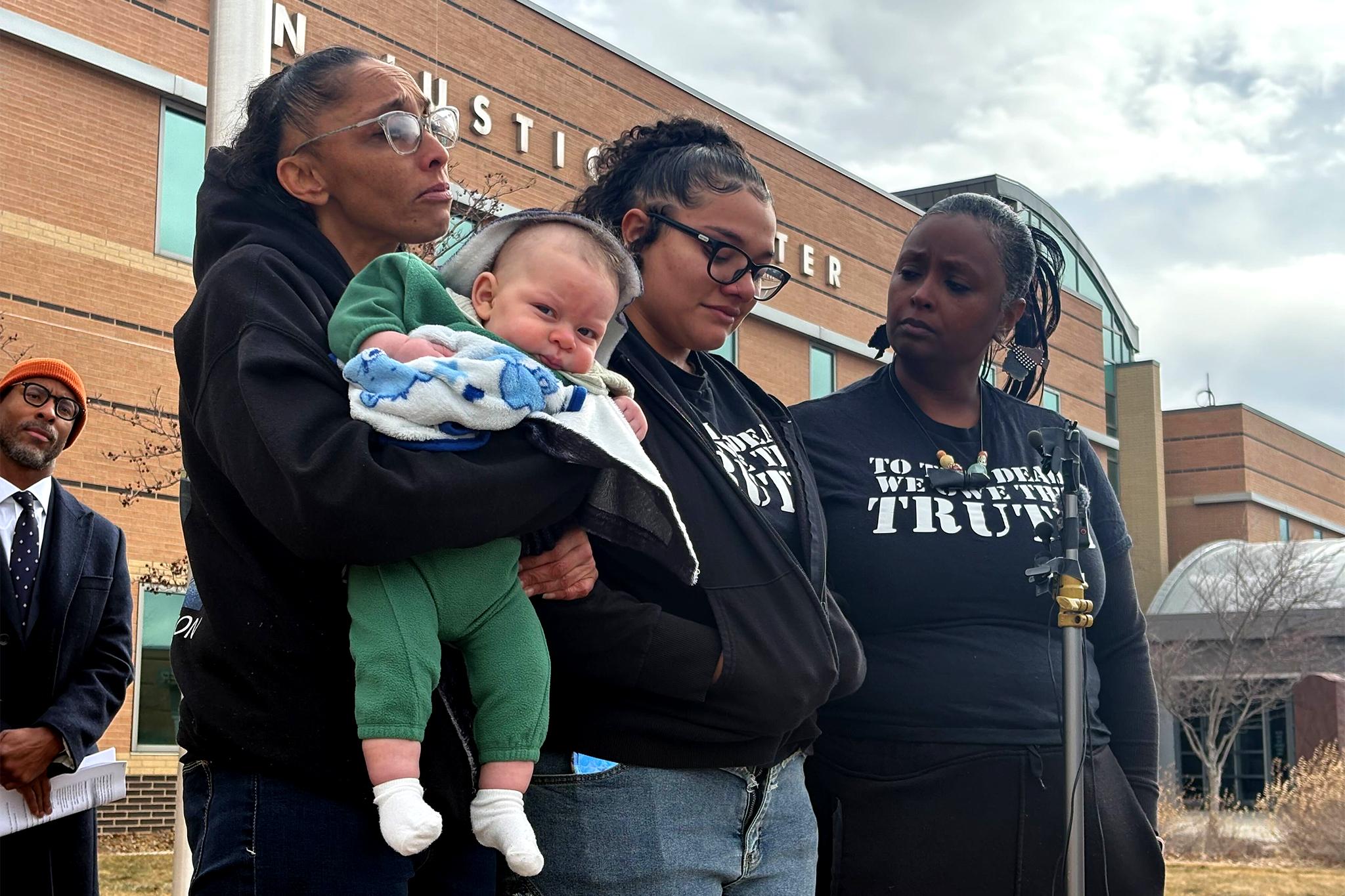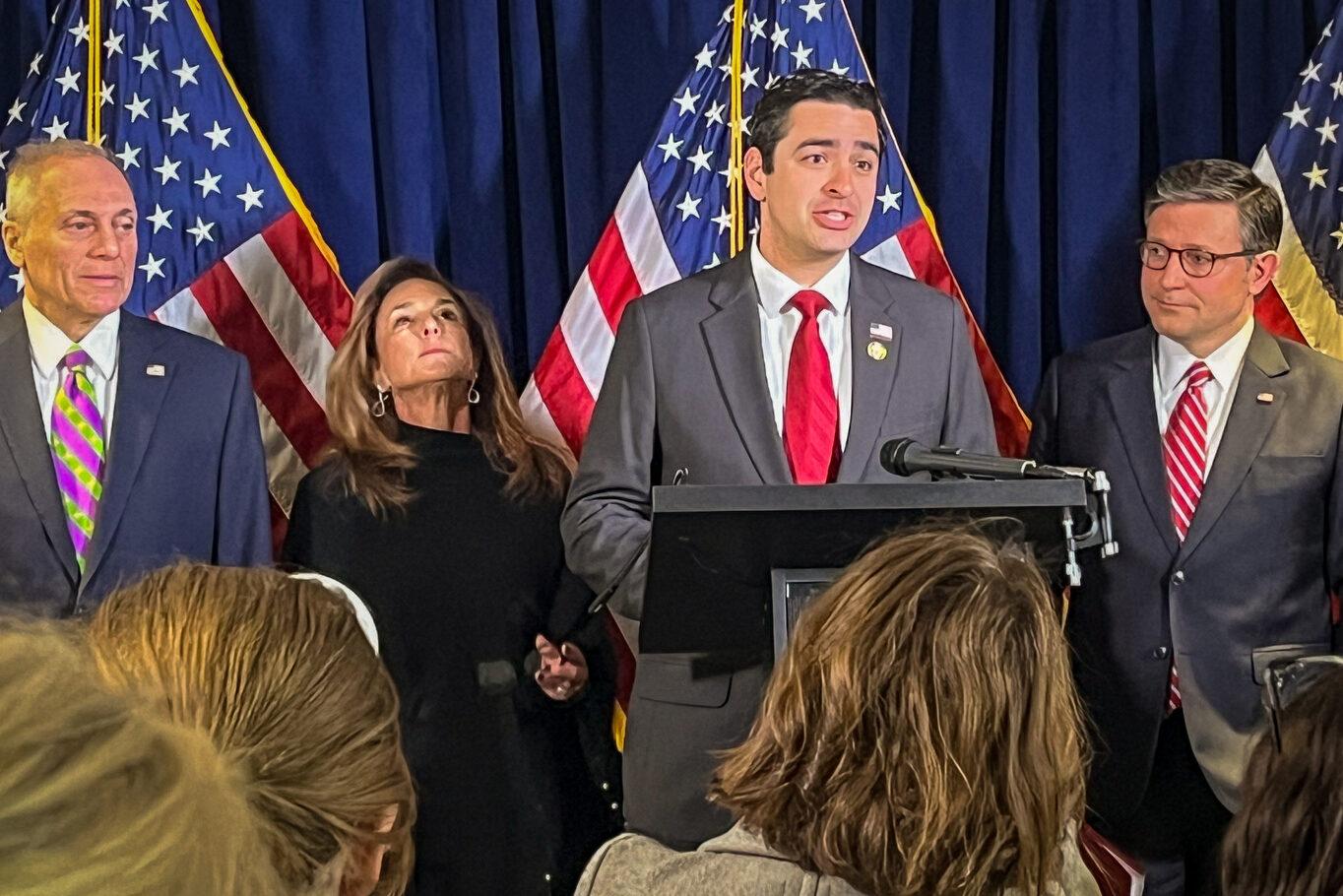
As the federal government shutdown continues, Republican lawmakers keep saying Democrats shut down the government to give “illegals” access to government-funded health care. Democrats say that’s a lie.
Like most things dealing with policy and politics. It’s complicated.
Claim: Democrats want to provide health care for “illegal” immigrants
One of the Democrats’ asks before they help reopen the government is to roll back the health care section from the One Big Beautiful Bill. Republicans have pointed out that means undoing the “Alien Medicaid Eligibility” and “Expansion FMAP for Emergency Medicaid.”
To be clear, undocumented immigrants are not eligible for Medicaid, but some lawfully present immigrants do qualify if they meet eligibility requirements. But the keyword there is lawfully.
First, Republicans point to the Alien Medicaid Eligibility section as an example of Democrats wanting to give “illegals” health care. (Alien is how the federal government describes noncitizens.)
What the OBBB did was limit what types of public benefits — like health care — lawfully present qualified alien (defined under the Personal Responsibility and Work Opportunity Reconciliation Act) could get access to, if they meet certain requirements, like having been in the U.S. for five years. The OBBB kept it for Legal Permanent Residents, certain Cuban and Haitian immigrants and Citizens of the Freely Associated States (COFA) migrants present lawfully in the U.S., but cut it for other lawfully present aliens, such as refugees, aliens granted parole for at least a year, and some victims of abuse or trafficking.
Nowhere in any Democratic proposal have they suggested that they want to extend such coverage to undocumented immigrants.
“All of these folks have to have a lawful immigration status. And a whole lot of people with lawful immigration statuses are already barred from accessing Medicaid,” said Shelby Gonzales, vice president for immigration policy at the Center for Budget and Policy Priorities, a left-leaning think tank. “It is a false statement to say that people who were undocumented previously enrolled and were eligible for any of these programs that were narrowed and very, very much restricted.”
Where it gets murky is who was granted parole. House Speaker Mike Johnson on Wednesday said the Biden Administration abused the parole program when it granted parole status to “millions” who crossed the border illegally. “That was an outrageous violation of the existing federal law and of the principles of good stewardship,” he said at a press conference. There’s a case making its way through the courts now that will decide that question when it comes to some parolees the Trump administration is trying to strip of that lawful status.
Still, if the court decides to revoke parole, the immigrants would be ineligible for the program, which gives benefits like health care to some lawfully present immigrants.
The second issue is emergency Medicaid. This program reimburses hospitals for emergency medical care for people who don’t qualify for full Medicaid, often due to their immigration status. It’s for treatment for possible loss of life, limb or serious impairment of bodily functions. A 1986 federal law, signed by President Ronald Regan, requires emergency rooms to treat patients in an emergency regardless of their ability to pay or, in this case, immigration status.
So yes, in this circumstance, undocumented immigrants receive health care, and hospitals get paid for their treatment.
The OBBB reduced funding for the emergency Medicaid program. According to the Congressional Budget Office, that cut is estimated to save $28 billion over 10 years. KFF, a nonprofit health policy organization, reports that in FY2023, $3.8 billion was spent on emergency Medicaid — that was about 0.4 percent of total Medicaid spending that year.
Claim: By wanting to repeal the health care portion of OBBB, Democrats are getting rid of the Rural Hospital Fund
The Rural Hospital fund, which provides $50 billion over 5 years to states, was created by the OBBB. Half of it must be evenly divided between the states, while the other half is up to the Centers for Medicare and Medicaid Services to distribute.
So yes, getting rid of the health care portion of OBBB would get rid of the fund.
But you have to keep in mind, the fund was created to offset the OBBB’s Medicaid cuts, which was expected to hit rural hospitals hard. According to KFF, the fund will cover just under 40 percent of the estimated loss of federal Medicaid funding in rural areas from the OBBB.
“The whole purpose of the fund was to give cover to the fact that [OBBB is] cutting $1 trillion in Medicaid,” said Gbenga Ajilore, chief economist for the Center of Budget and Policy Priorities. “The biggest rural thing was Medicaid.”
Also, the way the fund has been set up, the money will go to states, not to rural hospitals directly.
In the end, it’s unlikely that Republicans will roll back part of their signature bill, especially the portion that helps pay for the tax cuts in the OBBB.
That leads to the Democrats’ other health care ask: extending the pandemic-era enhanced Affordable Care Act tax credit.
Claim: There’s time to act on this ACA subsidy
The ACA enhanced premium tax credits were introduced in 2021 and later extended to the end of the year. It helps people buy health insurance on the state exchanges and more than doubled the amount of people who bought health coverage from 11 million to over 24 million nationwide. In Colorado, about 100,000 more people got their insurance with the help of the credit. The added enrollment also happened because it expanded eligibility to include those with incomes 400 percent above the poverty line. For a family of four, 400 percent above the federal poverty line is nearly $125,000 annually.
Republicans argue that the credit expires at the end of the year, and there is time to negotiate. That is true.
However, open enrollment starts on November 1, and information on the higher amount people will have to pay will soon be released. The increase in prices are expected to cause sticker shock, and Democrats say many people will not be able to afford health coverage on the marketplaces as a result. This is why Democrats argue a fix needs to happen now. Many people will be making decisions on whether they can afford the higher prices soon, not sometime after November 21, the day the Republican's short term funding measure would run through.
Colorado and many other states have enrollment that goes through January 15, 2026. So if there are negotiations on an extension of the credit, people can still get coverage, in theory, with the tax credits intact. But coverage for them would not start until February 1. For people who want coverage to begin on January 1, they need to enroll by December 15.
Undocumented immigrants are not eligible for the tax credit. But again, some noncitizens who are lawfully present, like lawful permanent residents, are eligible. And to get the tax credit, they have to file taxes.
Some Republicans point to a Congressional Budget Office letter on the OBBB, noting that 1.2 million noncitizens would lose coverage as evidence that undocumented immigrants were getting the credit. But that analysis was in relation to the new restrictions on immigrant health coverage in the OBBB, the winnowing of the eligible lawfully present noncitizens (900,000 people losing coverage), and a ban on low-income lawful permanent residents getting ACA marketplace subsidies while in a 5-year Medicaid waiting period (about 300,000 people losing coverage).
Editor's Note: This story was updated to correct the date for when the Republican's short term spending fix would end.









